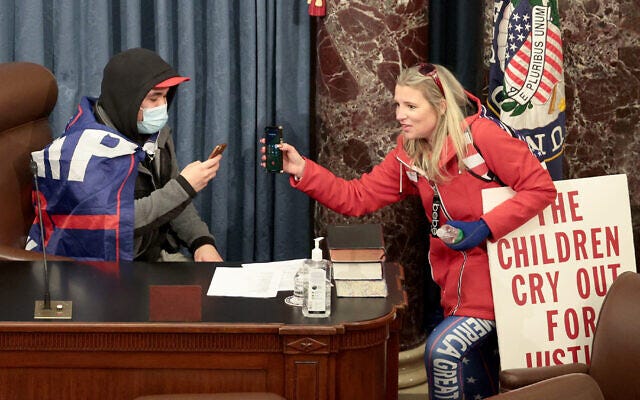CSPI is pleased to announce our first grant recipients.
Sierra Davis is currently a PhD student in Political Science at Stanford University and a graduate fellow at the Stanford Center for American Democracy. Her research interests include political beliefs and partisanship, gender in politics, elections and voting behavior, and ideology and public opinion. She also has experience in survey methodology and survey experiments. In addition to exploring what underlies support and positive affect toward QAnon, she also has projects on masculinity/femininity in intra-party competitions in the United States and the perceived efficacy of women's representatives in Uganda. Prior to starting her graduate studies at Stanford, Sierra earned a BA in Political Science at Brigham Young University and worked from 2018-2020 as a Research/Survey Specialist at Qualtrics.
Jack Thompson is currently a PhD candidate in political science at Nottingham Trent University. His dissertation examines White voter behavior in the 2016 US presidential election. Jack has recently published articles in American Politics Research and Nations and Nationalism, and his research interests include elections, public opinion, voting behavior, political communication, and rural sociology. He is currently working on projects that probe the salience of belief in the “Great Replacement” among Whites, as well as a temporal network analysis of alt-right online forums.
During the Trump administration, the QAnon conspiracy purported that a cabal of Satan worshiping pedophiles was running a global child sex-trafficking ring and plotting against President Trump. The conditions under which some individuals come to believe in the salience of QAnon-related misinformation is uncertain due to the recent emergence of the conspiracy. In addition, there is a dearth of analysis as to whether exposure to QAnon-related misinformation is likely to affect the beliefs and behaviors of individuals. Sierra and Jack plan to conduct research on the conditions under which QAnon-related misinformation is likely to be salient, as well as which groups are especially likely to believe the conspiracy.
We wish them the best of luck, and look forward to reading their work.

